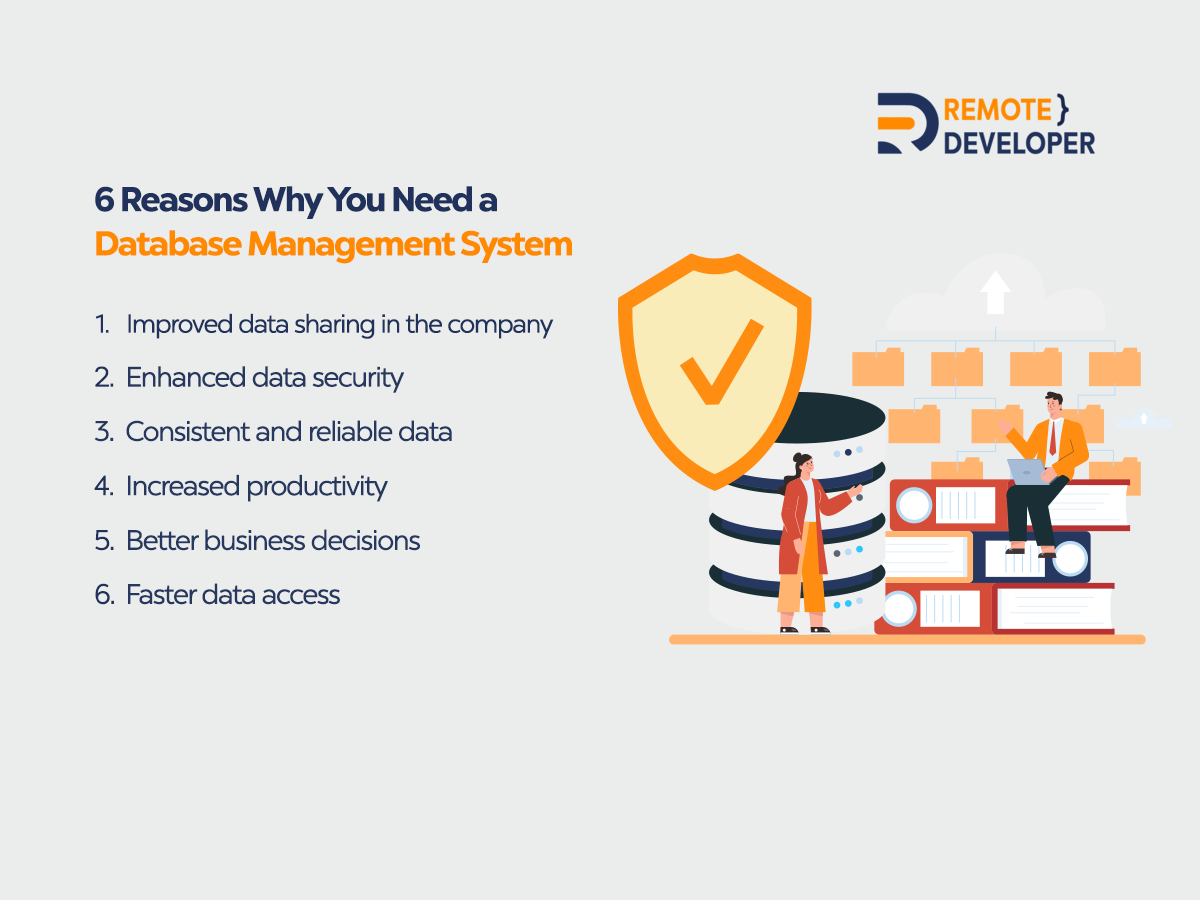As said by British Mathematician Clive Humby, data is the new oil. In this digital economy, data is one of the most valuable resources available to humanity. It can run and power both small and big companies to succeed.
However, like oil, data that is raw and unrefined is useless. Like raw oil, unprocessed or unrefined data has little value. It can be out of date, poorly structured, or denormalized, making it difficult to be used in making valuable business decisions.
And this is where a database management system (DBMS) can help your company. In a nutshell, it allows you to organize and control your data better. Likewise, this article will tackle the definition of DBMS, its components, and its benefits.
What is Database Management System?
A database management system (DBMS) is a computer software application that provides the interface between the user and the database interface. It handles all operations performed on the data, such as storing, retrieving, updating, and deleting data. The DBMS manages all aspects of the database: storage space and organization, protection against unauthorized access, data integrity (ensuring data consistency), and replication to improve the performance or availability of data.
What are the three types of DBMS?
DBMS have various types based on data models. However, we will focus on the main three types: Relational Database, Object Oriented Database, and Hierarchical Database. Below are the differences between the three.
1. Relational Database
A relational database is a database that is based on the relational model. It stores data in tables, each consisting of rows and columns. The rows represent records, and the columns represent fields (also called attributes).
2. Object Oriented Database
Object-oriented databases are a type of database built to store data in the form of objects. This means the data is stored hierarchically, with objects grouped into classes. Likewise, object-oriented databases are designed to store data in a more natural way for computer programs to manipulate. They also make it easier for programmers to create and maintain applications because they don’t need to deal with the complexities of relational databases.
3. Hierarchical Database
A hierarchical database is a type of database that organizes data in a tree-like structure. The data can be anything from an organization’s hierarchy to a computer’s directory structure.
Hierarchical databases are best used to store, retrieve and update information efficiently. They are typically less expensive than relational databases and more suited for small organizations.
6 Reasons Why You Need a Database Management System
As mentioned earlier, institutions can use a database management system to store, organise, and manipulate data properly. Besides that, this system serves various purposes, such as tracking inventory, storing information, and more. Likewise, here are six advantages of using a database management system in your company.

1. Improved data sharing in the company
Database management systems are designed to store, organize, and manage data. Likewise, companies can also use this system to improve data sharing in the company in a variety of ways.
Companies can use database management systems to improve data sharing by making it easier for people in different departments or organizations to access the same information. They can also help with the process of managing and organizing data. This is done by dividing the information into smaller pieces and storing them in different places on a computer or network.
2. Enhanced data security
Data security is an essential issue in today’s world because of the high risk that comes with storing data on individual computers. Database management systems ensure enhanced data security by providing a controlled and secure environment for storing data, which has been collected from various sources.
3. Consistent and reliable data
As companies scale, their customer and data collected increase. However, some companies are not prepared enough to handle this data. Essential data are often lost, deemed useless, or remain stagnant.
In this case, having a database management system will help your company. Today, many companies use DBMS to collect, store and manage large amounts of data and information, such as the names and addresses of all the people in an organization.
Moreover, a database management system ensures consistent and reliable data by providing features like:
- Data Integrity: Ensures that the data is accurate and consistent, even if there are problems with hardware or software.
- Security: Ensures that only authorized users can access the data.
- Data Replication: Provides backup copies to ensure that if one copy of the database becomes unavailable, another copy will still be available.
4. Increased productivity
Databases are the backbone of any organization’s IT infrastructure. They store data, provide access to users, and enable data management. One of the primary purposes of databases is to allow organizations to store and retrieve information in a structured format that Employees can retrieve quickly and efficiently.
As such, you have a DBMS can improve productivity by automating processes such as backup or restore operations, indexing, or query optimization. This motion frees up your employee and organization from repetitive and time-consuming tasks.
5. Better business decisions
Databases are essential for any business. They store, organize and make data available to those who need it. It can also control how data is stored and retrieved in a database. The DBMS provides several advantages for businesses:
- The structure of the database can be changed easily to suit different needs.
- It has improved manageability concerning data storage and retrieval.
- Data integrity is maintained through checksums, which validate the integrity of data stored in databases.
6. Faster data access
Some businesses are located in different parts of the country. However, most business locations need access to the same data, such as customer information, audience behavior, etc. And suppose your data is stored only on one system. In that case, this could cause an issue and obstruct your customers’ productivity.
Likewise, a database management system can help you with this issue. A DBMS may be installed on a single computer or many computers linked together in a network. This way, employees can retrieve data or information anytime, anywhere, as long as they are allowed access or accessing to an authorized device.
Conclusion
Having a database management system can surely help a business. It stores your data and helps you organise and efficiently manage large amounts of data. So if you are a company relying heavily on data, create your database management system.
And if you are building one, a Remote Developer can help you. We are an expert in building a database management system. Contact us now!

